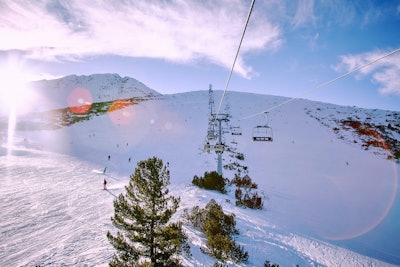
New research from Utah State University's Institute of Outdoor Recreation and Tourism examines what the changing climate will mean for the future of outdoor recreation in the West.
The review, published in the Journal of Forestry, compiles existing research that explores the ways in which climate change — with its soaring summer temperatures, mega-droughts, invasive species and other effects — alters the types and timing of outdoor recreation activities, as well as the indirect effects of these shifts on everything from bear populations to new problems with seasonal staffing.
The lesson at the heart of the review is that adaptation will be a critical skill as the new climate offers unpredictable scenarios to individuals, local economies, land-management infrastructures and long-term planners.
As reported by Lael Gilbert of Utah State TODAY, "There are innumerable economic and social implications from a changing climate — but in the Western U.S. where skiing, hiking, biking, hunting and other forms of outdoor recreation are core to many people’s lives, and where local economies rely on income generated by these activities, the impacts are already difficult to ignore."
Campsites that are too hot, ski resorts with fluctuating snowpacks, rivers with low water levels, and forests crowned with a halo of wildfire smoke all affect the number of people who participate in outdoor recreation and the quality of their experiences, Gilbert added.
“Land managers can prepare for climate change by learning the best strategies for adaptation, as we currently understand them,” said Anna Miller, lead author on the study. “Learning from past successes and failures when responding to things like extreme weather events can help managers better understand what’s going to best help them adapt to change — if and when it happens again.”
Developing collaborations and communication strategies between agencies within a local region right now will allow managers to respond more effectively as new situations arise. Managers also need to carefully consider how climate change adaptation strategies can improve equitable access to recreation opportunities.
Winter-based recreation sites may need to expand operations to include shoulder- and summer-based activities in order to stay viable in a warming climate. Summer operations may need to adjust budgets and staffing for longer seasons, and be better prepared for extreme temperatures.
“We may not know precisely what’s in store for outdoor recreation managers in the next decades,” Miller said, “but using our collective experience can help us learn how to adapt recreation planning for the most likely futures.”





































